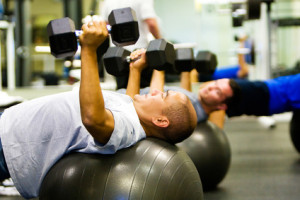- Calls to this hotline are currently being directed to Within Health, Fay or Eating Disorder Solutions
- Representatives are standing by 24/7 to help answer your questions
- All calls are confidential and HIPAA compliant
- There is no obligation or cost to call
- Eating Disorder Hope does not receive any commissions or fees dependent upon which provider you select
- Additional treatment providers are located on our directory or samhsa.gov
Put Away the Stereotypes, Guys Get Eating Disorders Too

Eating disorders are typically stereotyped as a ‘girls issue.’ But what about men because Guys Get Eating Disorders? We often times don’t think about men first when we hear the phrase, “eating disorder.”
Usually most people think of a young, white, underweight girl, but in reality both males and females are susceptible to eating disorders. Eating disorders are serious emotional and physical problems that can have life-threatening consequences for females and males.
The Research
Approximately 10% of those with eating disorders who seek help from mental health professionals are male. When you research population studies, they suggest that up to a quarter of people suffering with anorexia nervosa or bulimia nervosa is male, and almost an equal number of males and females suffer with binge eating disorder.
In a study conducted by DiDomenico and Andersen, they found that magazines targeted primarily to women, included a greater number of articles and advertisements aimed at weight reduction (e.g., diet, calories) versus those targeted at men contained more shape articles and advertisements (e.g., fitness, weight lifting, body building, or muscle toning).
Guys Get Eating Disorders and What to Look for
How do you identify if someone you love is suffering from a possible eating disorder? Below we have listed some signs and symptoms to look for.
- Men will usually exercise to tone and ‘get fit’ versus women who will try to lose weight.
- Men struggle with higher body dissatisfaction than non-eating disorder males.
 There is a higher preoccupation with weight lifting, body building, or muscle toning.
There is a higher preoccupation with weight lifting, body building, or muscle toning.
- Athletes who play sports that are focused on weight class and aesthetic ideals (such as, wrestling, cross country/track, jockeys, rowers, and swimmers) are at a higher risk for developing an eating disorder due to higher focus on weight/muscle tone/strength.
- Repeated injuries form over exercise usage.
- Lowered testosterone levels.
- Increased anxiety or stress over missing workouts.
- Muscular weakness due over starvation or exercise induced overuse concerns.
- Decreased interest in sex, or fears around sex and intimacy.
- Possible conflict over gender identity or sexual orientation due to cultural factors.
- Possible use of anabolic steroids to ‘bulk up’ muscle definition.
 About the Author: Libby Lyons, MSW, LCSW, CEDS is a specialist in the eating disorder field. Libby has been treating eating disorders for 10 years within the St. Louis area, and enjoys working with individuals of all ages.
About the Author: Libby Lyons, MSW, LCSW, CEDS is a specialist in the eating disorder field. Libby has been treating eating disorders for 10 years within the St. Louis area, and enjoys working with individuals of all ages.
The opinions and views of our guest contributors are shared to provide a broad perspective of eating disorders. These are not necessarily the views of Eating Disorder Hope, but an effort to offer discussion of various issues by different concerned individuals.
We at Eating Disorder Hope understand that eating disorders result from a combination of environmental and genetic factors. If you or a loved one are suffering from an eating disorder, please know that there is hope for you, and seek immediate professional help.
Last Updated & Reviewed By: Jacquelyn Ekern, MS, LPC on March 16, 2016
Published on EatingDisorderHope.com

The EatingDisorderHope.com editorial team comprises experienced writers, editors, and medical reviewers specializing in eating disorders, treatment, and mental and behavioral health.

